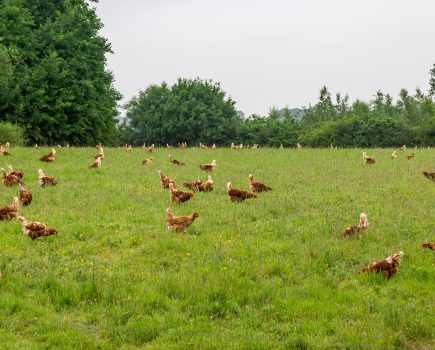MAY 7, 2013: Lots of people buy eggs for hatching, quite often over the internet. Chicken breeder and writer Andy Cawthray offers some advice…
Lots of people buy eggs for hatching, quite often over the internet. Chicken breeder and writer Andy Cawthray offers some advice…When it comes to hatching eggs, collecting them directly from the breeder is always preferable if you can as it not only enables you to meet the breeder and their birds but it also means that you can keep an eye on the eggs from the point of collection to the point they are put in the incubator or under a broody. It might seem common sense, but when you do collect the eggs make sure they are packed securely and are safe from rattling around on the journey home. Excessive shaking can addle the eggs or cause the air sac to become displaced. Also don’t leave them in a place where they might be subject to direct sunlight such as the front seat, or excessive heat such as a glove box or car boot as this can result in the eggs warming up and the incubation process starting. In fact, to be on the safe side, it’s probably best they are place in a cool box if the journey is going to be a long one. Of course, having the eggs posted to you is always an option, but you are then left in the lap of the seller and of the postal service (and potentially your own penny pinching!). Firstly it’s down to the seller to pack the eggs properly. This is simple enough to establish; just ask them before you commit to purchase. A debate has been going on as to whether traditional packing in a box with plenty of padding such as straw of polystyrene chips is better than the custom-built polyboxes. In my experience it’s not which is better, it’s how the seller packages the eggs in each that counts. Ideally the egg needs a cushion against shockwaves from travelling to the egg if the packet is dropped or bashed. Eggs carefully boxed in a bed of polychips or straw will provide the cushion, as will using a polybox larger than the egg you will be packing but wrapping each egg in kitchen paper so it fits snugly. Next is the postal journey. I send my hatching eggs Express Deliver next day by 1pm. It currently costs £6.35 to send a polybox of six average sized chicken eggs by next day delivery plus around 70p for the polybox, sticky tape and some brown paper to parcel up. It’s not unreasonable, then, in my view, to charge £7. I’m often asked to send the eggs first class as its cheaper (£5), but I won’t; it’s the buyers choice, but I doubt they will be blaming their decision to pinch a few pennies as being the reason why the hatch rate was poor. With cheaper posting, there is no guarantee on the delivery timescales; it could be up to three days and you have absolutely no idea what condition the eggs are being kept in. Basically, all the factors you would be looking to mitigate in the time spent transporting the hatching eggs and control of the conditions they are travelling in go straight out of the window. And don’t forget the price of the actual hatching eggs too. Don’t expect too much from half a dozen eggs that cost less than half a dozen eating eggs off the supermarket shelf as no breeder would devalue their work and stock by selling them so cheaply; they would sooner give them away. So, unless you are actually visiting the breeder, seeing their stock and collecting your fertile eggs in person, then don’t expect miracles from a bargain 99p half dozen eggs that you paid £2.50 P&P on which spend a week in the post and arrive loose in an egg box parcelled in bubble wrap. You might be lucky, you might get a show winner in there but, in the end, ‘you pays your money and you makes your choice’.







